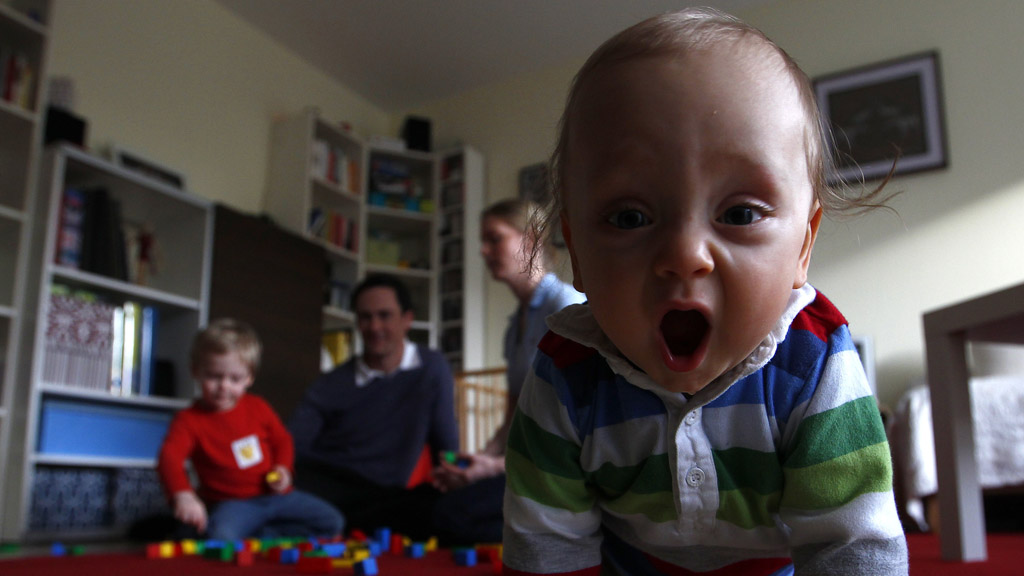Child benefit changes: the key questions
With more than a million families to lose some or all of their child benefit from today under austerity measures, Channel 4 News looks at who these changes will affect and what will happen next.

Who received child benefit before these changes?
Anyone with a child under the age of 16, or 16 to 18 in full time education. In some cases, child benefit is paid until the age of 20 if the child is in approved training that counts for child benefit.
Child benefit is set at two levels and is a tax-free payment. It is worth £20.30 per week for the first child, which equates to £1,055.60 a year, and £13.40 per week for each younger sibling, or £696.80 a year per subsequent child.
What is happening to child benefits?
The government has been planning to remove child benefit from higher earners since 2010, and last March announced its final proposals. If one parent earns £50,000, a family is hit with the high income child benefit charge (HICBC) at a rate of 1 per cent for every £100 earned over that threshold.
Those with an income of more than £60,000 lose all of their child benefit. Families where both partners have an individual income below £50,000 for a tax year will not be affected by the changes.
But families where both partners have an individual income below £50,000 should still be aware of these changes. The Institute for Fiscal Studies warns that those who are not affected this year could be hit in future as their income increases, because the £50,000 threshold will be frozen in cash terms.
One controversial element of the changes is that a working couple with a combined taxable income of £100,000, split equally between them, would retain all child benefit, but a couple with only one earner, or a lone parent, with taxable income of £60,000 would lose all of it.
How will I know if the changes affect me?
Her Majesty’s Revenue & Customs (HMRC) has been writing to the estimated 1.1 million people affected by the changes. The letters were intended to prompt families to think about their situation and to take action ahead of Monday’s deadline.
Last Thursday, HMRC admitted that it has been unable to contact everyone because of changes to their circumstances or contact details. Only 800,000 have been contacted, leaving some 300,000 people unaware of the changes.
During a Twitter questions and answer session on the changes on Thursday, an HMRC spokesperson advised families who had not been contacted to use a tool on its website to check whether they are affected and what they needed to do
The changes affect me – what happens next?
Families affected by the HICBC will still receive child benefit but will have repay it though a charge collected via their tax return or a revised tax code.
Those affected by the charge who decide to keep child benefit payments will have register for self-assessment, if they are not already registered, and fill in a tax return every year.
Families can decide to opt out of child benefit altogether to avoid the charge and the paperwork it would involve. This is an option for families earning £60,000 or more, who would not be financially better off receiving child benefit and then having to repay it.
HMRC has said that national insurance credits will not be affected, whatever option is selected.
What else can I do to avoid or reduce these charges?
There are some income adjustments that may apply which could bring a recipient’s income level down, such as pension contributions, childcare vouchers and buying extra holiday, which could reduce a family’s charge or eliminate it completely if it dips below £50,000.
This is because the income that is taken into account by HMRC is a person’s “adjusted net income” – that is, the income after company pension contributions and charitable donations and after money is taken out through any salary sacrifice schemes.
An HMRC spokesperson said: “We do expect some liable taxpayers ‘on the taper’ to reduce their taxable income, for example through increased legitimate use of tax reliefs. HMRC will enforce compliance within existing regimes.”